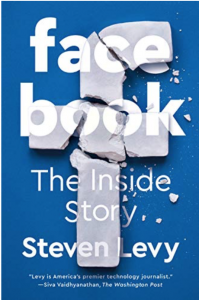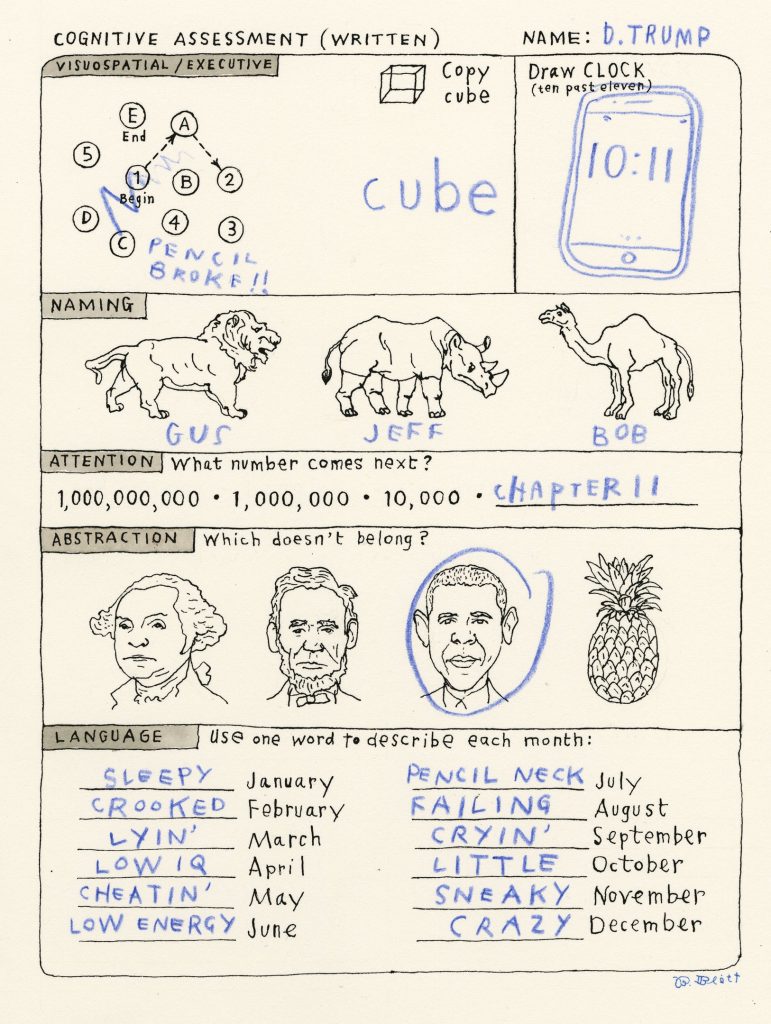Category Archives: Politics & Government
Cognitive Assessment
The Segregation Myth
Will I still have a title?
More than half of my 40 working years were spent in and around small/medium market radio. It is with some confidence I say titles were important. Program Director, News Director, Music Director, even PSA (Public Service Announcement) Director! As with a lot of businesses, titles were often handed out instead of compensation.
We had other duties, of course. In addition to choosing which songs the station played, the Music Director also pulled an air shift and probably recorded commercials. Might even have written some. But these somewhat arbitrary divisions of responsibilities — and the titles that came with them — were important.
In the early 1980’s, the station I was working at was sold to a man named Jerrell A. Shepherd, a very successful operator of a group of small market stations in Missouri. Shepherd didn’t run his stations the way most small market stations did, in ways too numerous to mention here. But he did have a different approach to titles.
As the story goes, when Shepherd bought a station he would call the employees into his office, one at a time, and say something along the lines of:
“I’m afraid we are eliminating the position of News Director (or whatever your title happened to be).”
What?! How can he eliminate the position of News Director?! Shepherd would give this a minute or two to sink in before explaining, “I do have another position available if you’re interested.” You’re thinking: New baby on the way, car payments, buying a house…
“Uh, yeah, I’m interested. What is the job?”
“On the programming side of our stations there is only one position and that is Programmer. Would you like to hear about it?”
“Yes I would.”
“A Programmer does anything and everything necessary to put programming on the station. He (very few women in those days) pulls an air-shift, writes and records commercials, covers news stories, reports farm markets, does sponsored remote broadcasts from our advertisers locations, records the 8th Grade Spring Concert from one of the small towns in our listening area (assuming it has been sold).”
No more fiefdoms. No more specialists. No more “directors.” From a management standpoint you can see how much flexibility this added. All by the simple device of eliminating titles. Some people chose not to make this transition and moved on. Mr. Shepherd was fine with that.
This story came back to me as I listened to people talking about reorganizing police departments. Fire everyone and only hire back the “good” ones. Stop using cops for traffic law enforcement. And so forth.
I don’t know the answer but if Mr. Shepherd were still alive, I’ll bet he’d have some ideas.
8:46
Chris Rock: Some jobs can’t have “bad apples”
‘I Have the Best Words.’ Now They’re Hers
Comedian Sarah Cooper’s homemade videos capture President Trump entirely through pantomime
“This is a bad orchard.”
“Stop saying the problem is just a few bad apples. It’s not an apple problem — it’s an orchard problem. If you went apple picking and the guy who ran the orchard said, “There are a few bad apples out there,” and you said, “How bad?” and they said, “Kill you bad,” you’d say, “This is a bad orchard.”
— Seth Meyers
Freedom became free-dumb in America
From an article about New Zealand Prime Minister Jacinda Ardern (The New Leader of the Free World)
Americans don’t have decent healthcare, retirement, education, incomes, governance. Trust and happiness have plummeted, and suicide and hopelessness are skyrocketing. Freedom became free-dumb in America. But in places like New Zealand, it evolved. It became the idea that we are freer when we all have expansive public goods, like healthcare, education, retirement, and so on. […] Americans are regressing backwards in time at light-speed — fast becoming a nation of “low-wage service workers”, an economists’ euphemism for “servants.”
Facebook: The Inside Story
 I’m at a loss for what to say about Steven Levy’s book, Facebook: The Inside Story. At 500 pages it’s a deep dive into the history of Facebook (the startup and all that’s happened since). The excerpts below are just a few of the things that caught my eye. It would be a mistake to judge the book (or Mark Zuckerberg) based on the passages I underlined.
I’m at a loss for what to say about Steven Levy’s book, Facebook: The Inside Story. At 500 pages it’s a deep dive into the history of Facebook (the startup and all that’s happened since). The excerpts below are just a few of the things that caught my eye. It would be a mistake to judge the book (or Mark Zuckerberg) based on the passages I underlined.
Soley by analyzing Likes, they successfully determined whether someone was straight or gay 88 percent of the time. In nineteen out of twenty cases, they could figure out whether one was white or African American. And they were 85 percent correct in guessing one’s political party. Even by clicking innocuous subjects, people were stripping themselves naked. […] In subsequent months,Kosinski and Stillwell would improve their prediction methods and publish a paper that claimed that using Likes alone, a researcher could know someone better than the people who worked with, grew up with, or even married that person. “Computer models need 10, 70, 150, and 300 Likes, respectively, to outperform an average work colleague, cohabitant or friend, family member, and spouse.”
A 2012 study found that Facebook was mentioned in a third of divorces.
It was a natural evolution to put (content moderators) in factories. They became the equivalent of digital janitors, cleaning up the News Feed like the shadow workforce that comes at night and sweeps the floors when the truly valued employees are home sleeping. Not a nice picture. And this kind of cleaning could be harrowing, with daily exposure to rapes, illegal surgery, and endless images of genitals.
Between January and March 2019, (Facebook) blocked 2 billion attempts to open fake accounts — almost as many as actual users on the system. […] The company concedes that around 5 percent of active accounts are fake. That’s well over 100 million.
It’s left to the 15,000 or so content moderators to actually determine what stuff crosses the line, forty seconds at a time. In Phoenix (site of one of the moderator “factories”) I asked the moderators I was interviewing whether they felt that artificial intelligence could ever do their jobs. The room burst out in laughter.
A computer-science teacher at one of the big AI schools told me that Facebook used to be the top employment choice. Now he guesses that about 30 percent of his students won’t consider it, for moral reasons.
“We’ve actually built an AI that’s more powerful than the human mind and we hid it from all of society by calling it something else,” Harris says. “By calling it the Facebook News Feed, no one noticed that we’d actually built an AI that’s completely run loose and out of control.” Harris says that using the News Feed is like fighting an unbeatable computer chess player—it knows your weaknesses and beats you every time.” — Tristan Harris (former Google interface engineer)
A few take-aways:
- Facebook might be the most powerful (influential) organization in the world. And therefore — potentially — the most dangerous.
- Everyone on the planet is affected by what Facebook does (or doesn’t do). Even those of us without accounts.
- Mark Zuckerberg is brilliant and has surrounded himself with other brilliant people. He seems to believe he is always the smartest person in the room.
- Zuckerberg is on a mission to save/change the world. Combined with the above, this makes him very dangerous.
- People who use Facebook (and those of us who do not) have no idea the extent to which we are influenced by the people running the platform.
- Users will never —voluntarily — stop using Facebook.
The book has left me a bit shaken. I always considered religion — some religion — the greatest danger to humanity. Facebook seems a greater threat.

